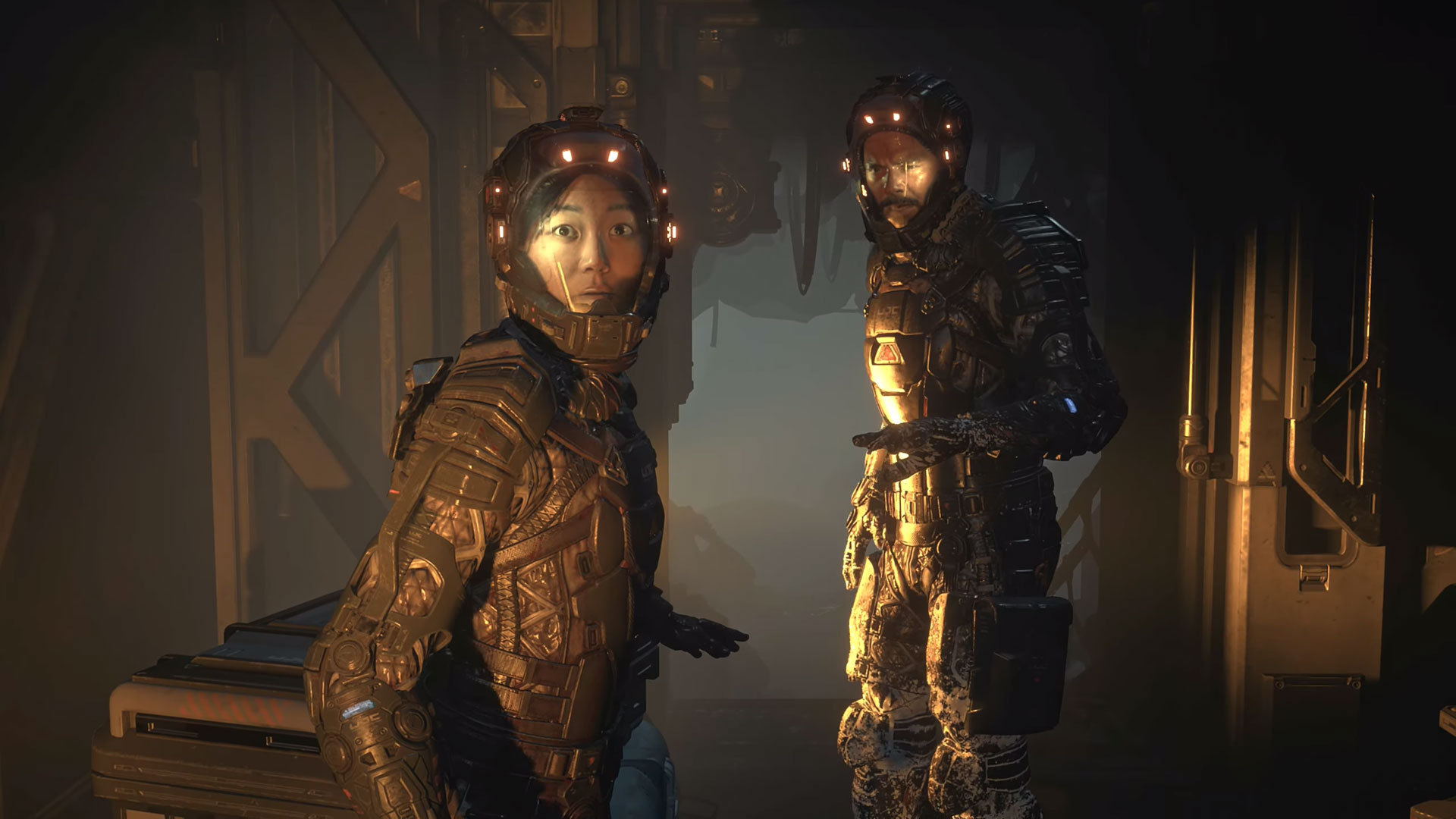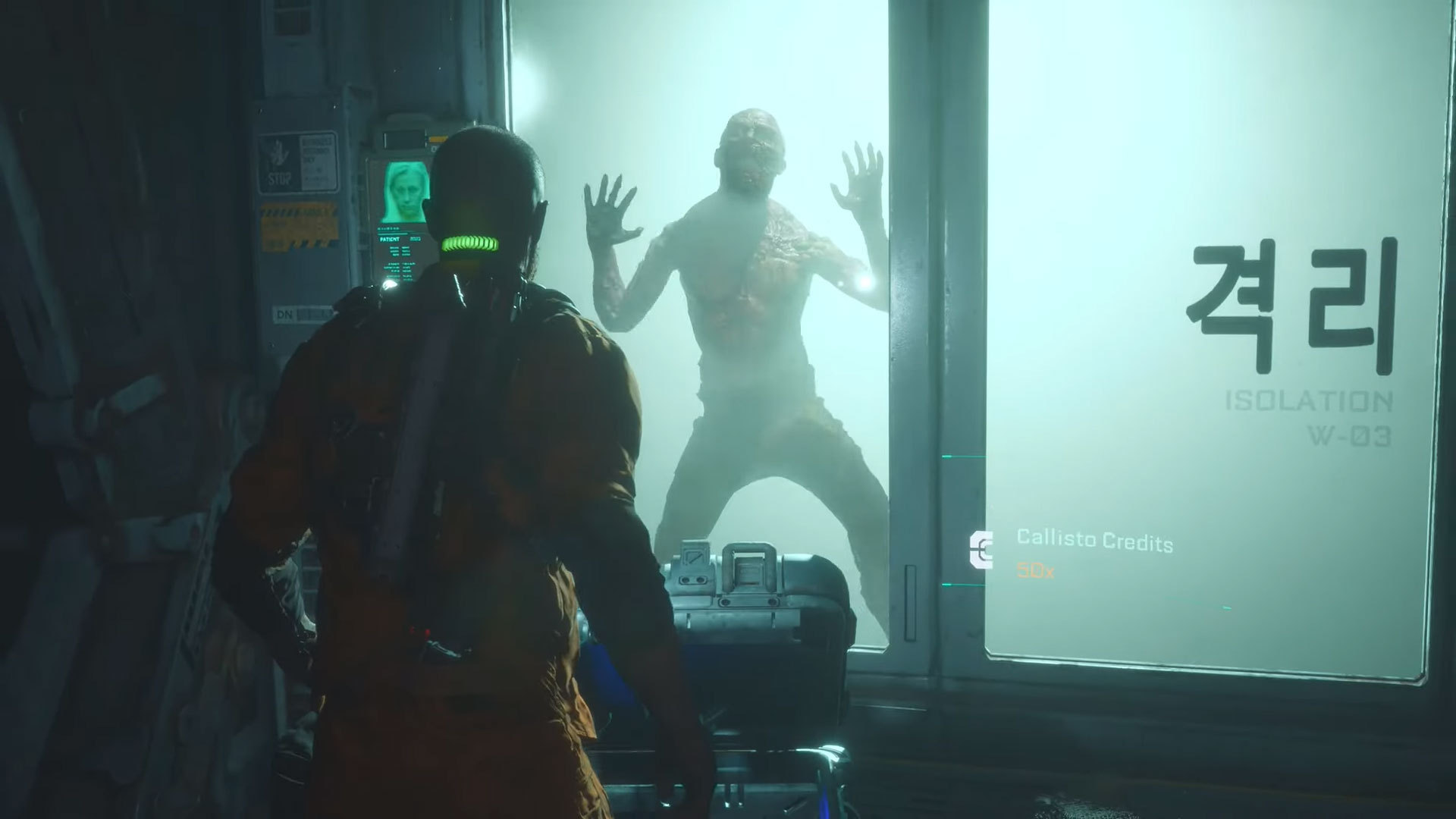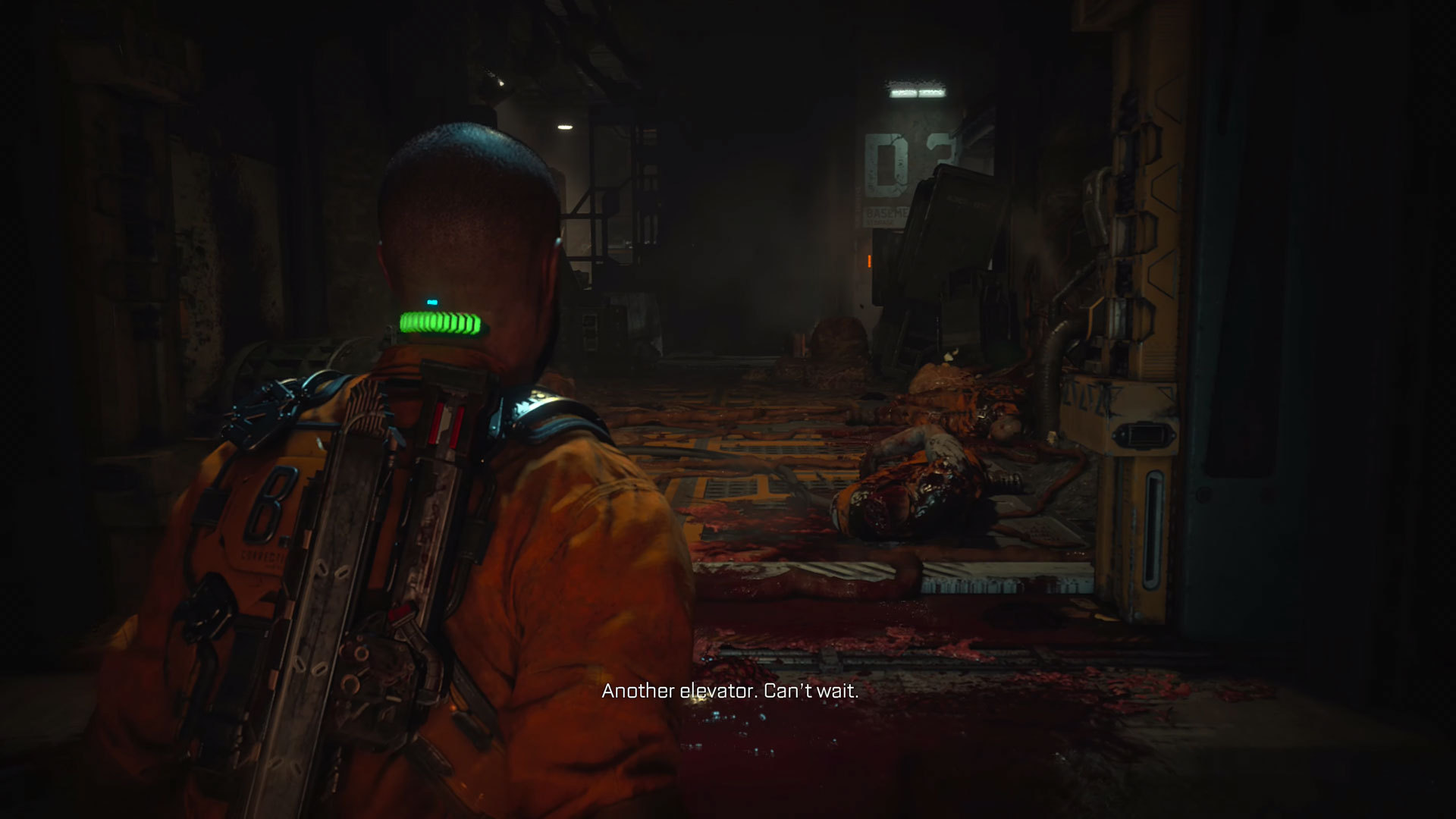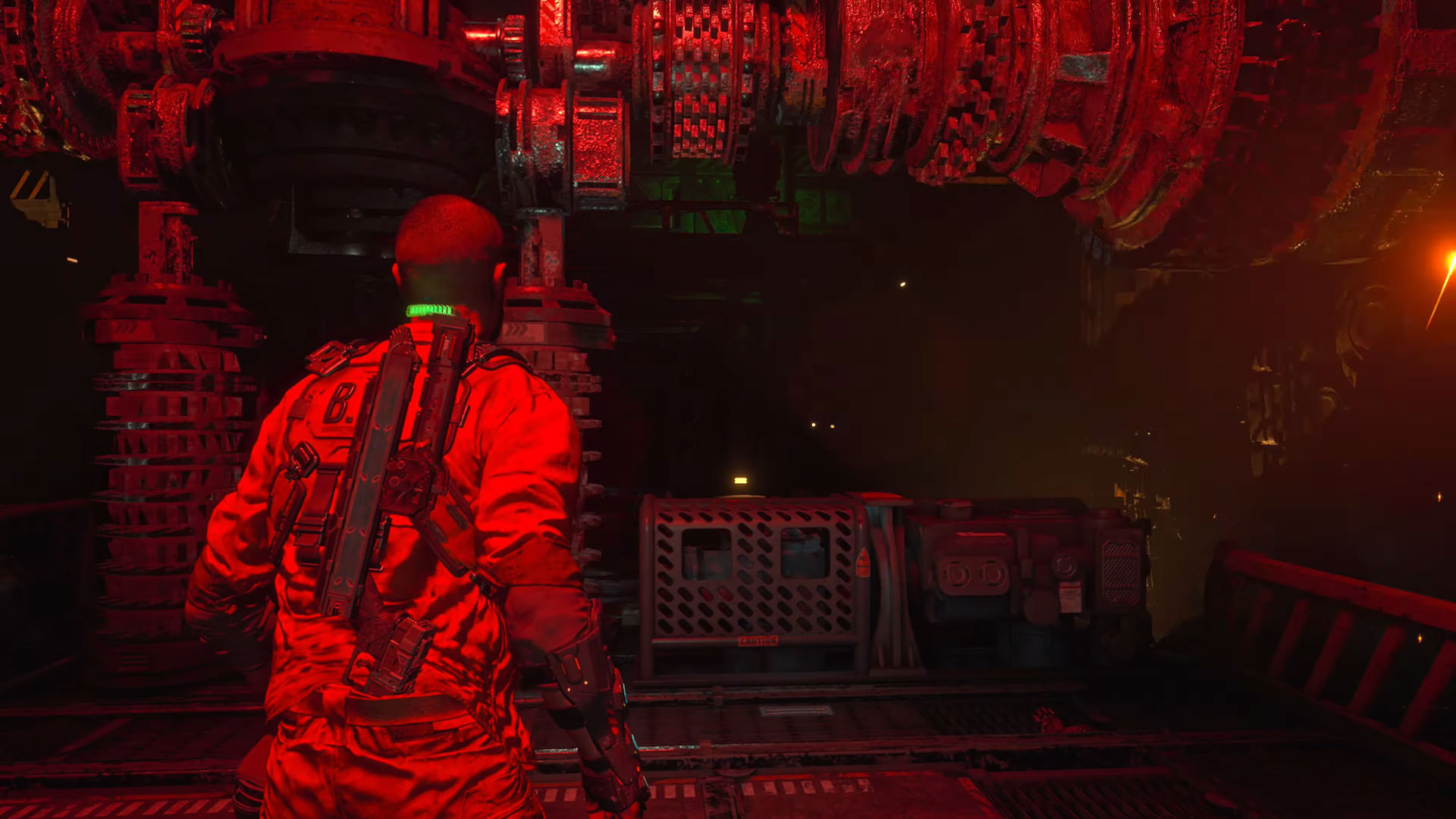The Callisto Protocol Review
Xbox Series X|S
Anyone unaware of the existence of Dead Space will be impressed by The Callisto Protocol.
Reviewed by Rayan on Dec 20, 2022
The Callisto Protocol ranks among the highly anticipated recent releases of 2022. Every survival horror fan has wondered whether it would deliver the kind of sensation they've been craving. Despite being a new IP, the game's success might be attributed to its development by Striking Distance Studios, which included individuals like Dead Space's Glen Schofield.
The frightening gameplay of Dead Space has been seared into the minds of horror fans ever since the game's inception, and everyone carries that experience with them. The Callisto Protocol pretty much runs in this same vein, and it also looks and feels fantastic on Xbox Series X. The terrifyingly awful events proceed in their ruthless ways in this game, and it's a monstrous game unlike any other, but should it compete with Dead Space?

The developers made a long list of promises, each more outlandish than the last, including a spiritual sequel to Dead Space, a game that would push survival horror to new heights. The Callisto Protocol, indeed, is an impressive demonstration of the fact that hell may be located everywhere, not only below the earth. The motivation for the game is not hidden. Rather, it is a vital part of its identity.
There are minor variations, such as the fighting, but overall, this seems quite similar to Dead Space. The designers have gone where nobody can save you from the monsters that lurk beyond the stars and something you have never encountered before. But from its inception, the game has been overshadowed by the events of the Dead Space series.
The Callisto Protocol takes place in the year 2320 on Jupiter's dead moon, Callisto, and starts in the high-security jail known as Black Iron Prison. Protagonist Jacob Lee (Josh Duhamel) must investigate the shady operations of the United Jupiter Company. Everything gets flipped upside down when terrorists, headed by Dani Nakamura (Karen Fukuhara), hijack their container ship and force them to land on Callisto.
Dani and Jacob are the only ones left, so the warden sends them to Black Iron Prison. After surviving the torture of being sent to jail, Jacob wakes up to find that the facility has been invaded by inmates with a mysterious sickness. He must now figure out how to survive this nightmare and escape prison.

Jacob, with the assistance of other characters, must attempt to flee in order to save his life, but he will learn the truth about the world as he travels and faces terrifying circumstances. This tale isn't very innovative; instead, it relies on a number of old stereotypes. Nevertheless, the narrative is bolstered by the presence of Josh Duhamel and Karen Fukuhara.
There aren't any particularly memorable lines of dialogue or plot twists, but there are a few thrilling sequences that help elevate what is otherwise a rather standard production. The game accurately portrays the performers' range of emotions and physical expressions using motion-capture technology. Both parts are necessary, and we have grown fond of them together. Thankfully, the game concludes with a cliffhanger that sets up an intriguing sequel.
Players will notice a variety of references from Dead Space during the game. The plot is similar to that of classic science-fiction horror games. It is not delicate, but that goes with the game's atmosphere: the abandoned laboratory bench with its solitary corpses, the glass doors where creatures spring out of nowhere, the silhouettes of monsters echo vaguely in the darkness of the hallways, etc.
Many of its scenarios are portrayed in almost pitch black, and strange lights and ominous ambient noises persist throughout much of the runtime. There is a palpable sense of unease in every nook and cranny. However, there is an excessive dependence on sudden frightening scenes, which will ultimately get repetitive and do not really affect the player in the first place.

Perhaps the most important aspect of The Callisto Protocol is how well each of its parts fits into the overall picture, creating the tension of a genuine survival horror experience for the player. If the game hinged on its ambiance alone, it would most likely fail quite swiftly.
Everything feels realistic, not just visually but also audibly. Everything is amplified so that you can pick out every sound: footsteps, metal, blood, breathing, the echo after a shot, and the feeling of true danger that the fans give off as we come closer is outrageous and, to my knowledge, remarkable.
This method for conveying motion is very user-friendly and effective. The gameplay, especially the hand-to-hand fighting, sets it apart from the vast majority of survival horror titles. Jacob Lee has a proximity weapon (an electric baton) for self-defense.
However, in contrast to Dead Space, this feature is crucial to the game. The combat is controlled by a combo-based system, in which players alternate between light and heavy melee strikes while also using the L stick to dodge attacks to the left or right at the precise moment needed. Knowing how to dodge is crucial since it involves the most fundamental actions in the game.
Calisto Protocol uses the usual suspects of stress components to make its extremely basic fighting just a bit more taxing on the player's nerves. It's not always the enemy's cunning trickery or overwhelming might that ends your life; sometimes, it's the length of time it takes to switch weapons or heal, the difficulty of seeing an opponent on the ground in the dark.

Also, you've already died 20 times despite your best efforts at dodging and mending. When going up against a boss, you'll need to quickly switch weapons, but you can't afford to press RT once by mistake. The attempt to increase realism by visual means was effective, but as the game progresses, this approach ultimately leads to annoyance and monotony.
There is no branching or rewinding in The Callisto Protocol; it's a strictly linear, third-person survival horror experience, and it's not going to be a walk in the park. The game's greatest strength is that it gives you the tools you need to make tough decisions and find a way to live. There are very few but effective weapons to immerse in a survival experience, and the game's limited supply of items might be frustrating.
You can buy new weapons and ammunition using Callistos Credits, the game's currency. Even if you're willing to shell out cash for a health refill, you'll still have to choose between upgrading your equipment with the cash you've made and collecting the health refills that are strewn over the map; each refill takes up one of the available slots in your inventory, which you'll need to utilize for other items.
The Callisto Protocol obviously focuses a lot on fighting and combat, with Jacob's collection of combat weapons and weaponry becoming ever larger. There isn't quite as much variety as there would be in a pure action game, but the starting tools and unlockables are more than enough to handle any challenge.
This focus on action isn't inherently a bad thing. However, since the game was clearly made with this intention in mind, and the horror component is meant to be a side dish, the difficulty rises with the introduction of new enemy types, which may be tweaked to fit the player's playstyle. However, additional enemy varieties would be welcome.

Jacob's arsenal is extremely similar to the one seen in the Visceral Games classic. There's a stealth and silent killing mechanism at your disposal. However, the method is ineffective and can only be used against certain enemies; more powerful enemies would still be able to evade your attacks. The GRP glove allows players to grab distant foes or environment items, expanding the game's already expansive tactical options.
They're diverse and provide you with options for tackling different parts of the game, especially when it comes to dispatching enemies. The player experience is ultimately important, and here, the gameplay reveals the need for additional refinement since it is too cumbersome, and you will find yourself fighting against the mechanics more often than not.
Positioning and clever use of the surroundings are crucial to success in The Callisto Protocol's fighting system. Since there is less freedom for maneuvering, you can no longer afford to be cornered in these arenas. If not, you're in for a rough day, particularly because the poor camera movement will only make it harder for you to emerge unhurt from fights.
It's a pity there are so many extended stretches of vent crawling and incredibly narrow tunnels across the levels, and some of the pathways can end up being completely useless. Additionally, the combat isn't helped by the game's many launch-day glitches. You're about to lose your way around the map and be ambushed by unseen foes several times. And there's no doubt that you'll die many times, but there is nothing wrong with a challenging game. However, it can feel unfair when you die due to a glitch instead of your actions.

Despite its flaws in gameplay, The Callisto Protocol's level design, thematic buildup, and feelings of helplessness and dread are all superb. The game is uninterrupted by any non-playable elements other than tutorials. This also enhances the realism of Jacob's tense battle for existence. There is a strong emphasis on exploration, as Callisto conceals a plethora of hidden regions containing a plethora of helpful items and Callisto's Credits, the latter of which may be used to upgrade our equipment at specialized 3D printers dotted around the levels.
All the while, we're encouraged to keep our eyes peeled and, more importantly, to destroy every creature we kill in order to find valuable items that might save our lives. We will embark on a journey that is unbearably cruel, raw, gory, and dark, befitting the spiritual successor to Dead Space.
When it comes to the enemies in The Callisto Protocol, there is enough diversity to keep things interesting without being very impressive. Even the most basic ones may be devastating, whether they just throw strikes, have access to range abilities, strike from above, or are blind, yet can still rip you to shreds the instant they detect you.
Similarly, there are usually several ways to approach a fight in the game. You may sneak up on an enemy stronghold and wipe them off efficiently, or you can go in for some good old-fashioned hand-to-hand fighting. Some of them begin to morph at a particular point in the plot. This will morph into a far more resilient and aggressive version if you wait to kill them.

Overall, it is a genuine sci-fi survival horror adventure that doesn't offer anything groundbreaking but does know how to please lovers of the genre. Despite its brief length, the game provides a satisfying survival horror experience in a range of settings, carried out by a superb cast. The Callisto Protocol might have been the finest horror game of the year if more effort had been spent fixing some of its issues.
Sadly, this results in a gameplay experience that is sometimes tedious and uninspired, skipping from moments of triumph to periods of undesirability with no clear pattern. If you're a fan of survival horror games, particularly Dead Space, you wished for the title, but you're constantly let down by it. One fact for sure: anyone unaware of the existence of Dead Space will be impressed by The Callisto Protocol.
Senior Editor, NoobFeed
Verdict
The Callisto Protocol is a genuine sci-fi survival horror adventure that offers nothing groundbreaking but knows how to please fans of the genre. Anyone unaware of the existence of Dead Space will be impressed with it.
75
Related News
No Data.

